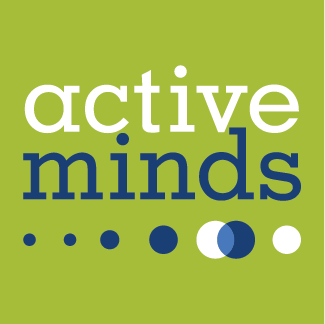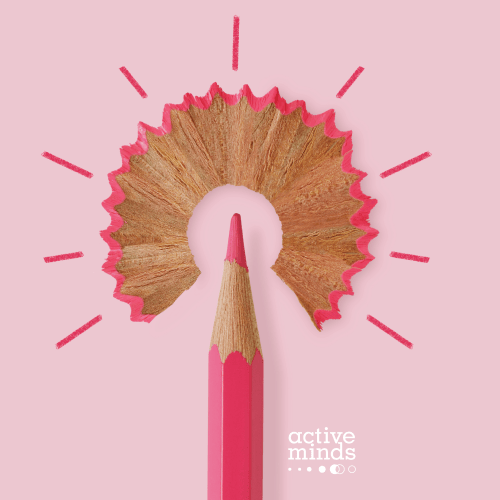Body dysmorphia, bullying, loss of identity. These important topics, among others, were discussed candidly and powerfully in an Instagram Live conversation between Active Minds’ founder and executive director Alison Malmon and the 2022 Bachelor Clayton Echard. View the full conversation here, and read below for our takeaways from this important discussion:
- Our words have power.
During their conversation, Clayton discussed both the bullying he faced at a young age, as well as the cyberbullying he experienced following his time on the Bachelor. He shared the impact those words had on his self-esteem, body image, and more broadly, his mental health as a whole. These clear examples of times when words tore him down are an example that words matter! They can have a negative impact, either intentionally or unintentionally. He also shared, however, about the massive positive impact they can have, by sharing the story of one of our Active Minds Speakers, Kevin Briggs, a California Highway Patrol officer. Kevin has saved hundreds of lives with his words, by having conversations with those experiencing a mental health crisis on the Golden Gate Bridge. Both of these examples, bullying and saving lives, show the weight words can have, and the importance of choosing them wisely. - Opening up about your own feelings and struggles can encourage those around you to do the same.
When asked how he encourages his friends to talk more openly about their mental health, Clayton shared that he leads by example: “… being proactive and talking to those friends and letting them know, if I am able to share with them then they can be comfortable enough to share it back with me.” He also emphasized the need to validate what others share with you. Using a tool like V-A-R®, or Validate-Appreciate-Refer, can be a great start if you’re not sure how to navigate everyday mental health conversations. - We need specific strategies to target the improvement of men’s mental health as a whole.
When asked how he takes care of his mental health in the day-to-day, one strategy Clayton shared is his recent passion for journaling. However, he also explains that despite the benefits that writing down his thoughts and feelings each day has provided him, he knows other men may be wary of practicing self-care this way, or in a variety of other ways, because it may make them seem less of a man. “Men struggle with [mental health] just as much as women do with their own internal struggles. But when we internalize it and suppress instead of address, it just piles on and builds up,” said Clayton. He recognizes the role that institutional and systemic characteristics of our society, such as toxic masculinity, play in perpetuating a culture where men are encouraged to shy away from mental health. To combat this, we must think intentionally about how we can break down the unique barriers men face to receiving care and improving their mental health, and this starts with people like Clayton sharing their stories and encouraging others to do the same.
- It’s never too late to focus on our mental health.
Many of us might not have grown up in a family or community that prioritized or openly discussed mental health. For Clayton, growing up as a male athlete often meant that your emotions and well-being were pushed down and kept to yourself. Despite this, he wants to share that it’s never too late to start your mental health journey, whatever that looks like for you. Your dedication to your own well-being can inspire those around you, and be a catalyst for changing the culture around mental health with your friends, in your family, and across your community.
- Your story can change lives.
“All of our voices have the power to save lives.” We couldn’t agree with Clayton more. Through programs such as the Active Minds Speakers, resources like the Active Minds blog, and initiatives like our Send Silence Packing® display and Behind the Backpacks virtual experience, your voice – your story – can be amplified through Active Minds to change lives. We may not always see the direct impact our voices have, but the collective culture-shifting happening because of an increased willingness to share and be open is real. Sharing your story reminds those around you that they’re not alone, that it’s okay to not be okay, and that things will get better.
Special thanks to Clayton for joining us for this energizing and impactful conversation!







